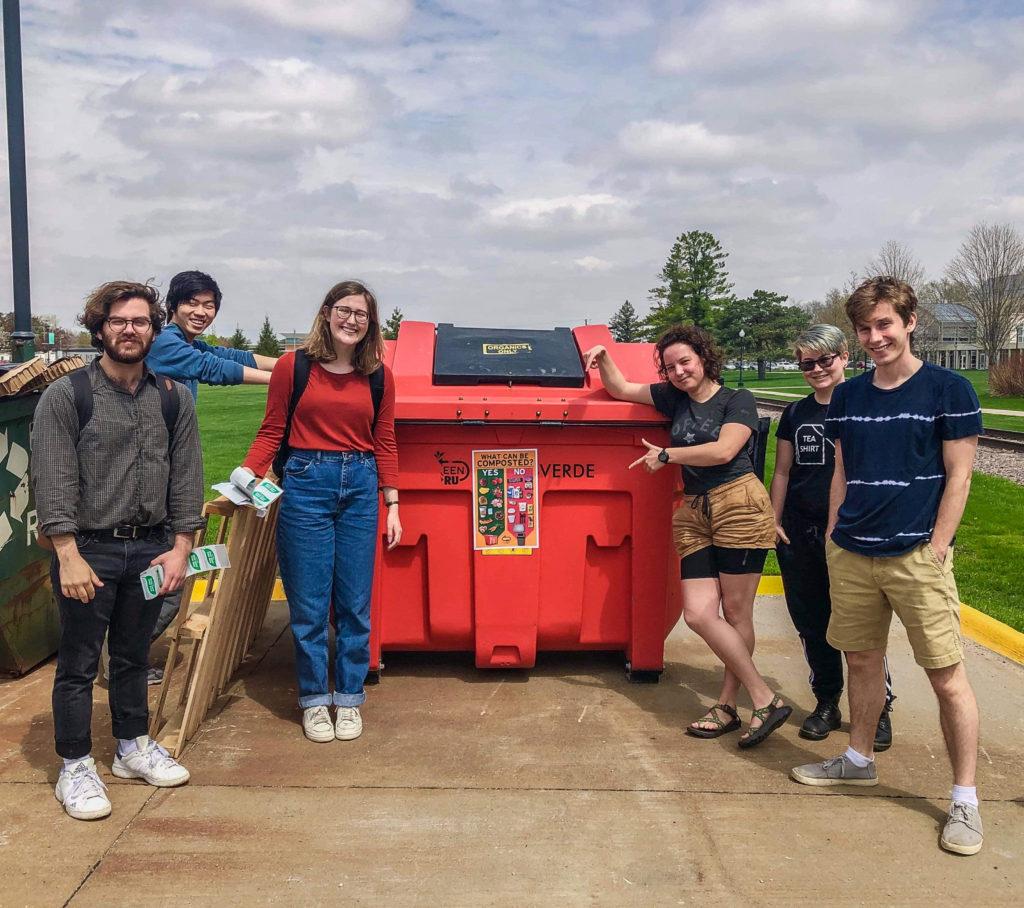The College has begun a large-scale industrial composting program on campus in response to students who expressed interest and as part of a general effort to improve its carbon footprint. The new industrial composting system is separate and larger than previous composting efforts at Food House and the Grinnell College Garden, in addition to the composting the dining hall has been doing at a local farm.
Under the new system, students can put their compostable material in bins outside Smith, Dibble on North Campus, Loose on South Campus and a bin in the Kershaw recycling room on East Campus. Compostable materials include all items at Spencer Grill with an “Earth choice” logo, which indicates industrial compostability. This includes cups, lids for cold drinks and sauce containers. However, hot drink lids must be thrown away. Students can also compost paper plates, napkins and anything that could normally be recycled but has grease or food on it.
The new system creates greater composting possibilities, as previous practices did not have the resources to compost as many materials. Under the new system, Grinnellians can now compost bones, meat or plant-based plastics. “We’ve had plant-based plastics in the Grill for a long time, but we’ve had to throw them away because we didn’t have an industrial composting system, even though they were industrially compostable,” said Rachel Snodgrass ’21, co-chair of the SGA Green Fund Committee.
Around ten years ago, the College had looked into industrial composting, but the costs were too high to make it a viable option. This semester, however, the green fund looked into industrial composting and found it costs half of what it did a decade ago. “When I started here, I had [looked into] what it would cost. At that point, we were going to be the only stop on a route anywhere near us,” said Chris Bair, Environmental and Safety Coordinator for the College.
“The price has gone down a lot, I think in part because they have more clients nearby,” Snodgrass said. “It would be on their way to pick it up here.”
The Student Environmental Committee decided to look into composting this semester due to the failed divestment movement last year. A sustainability committee, which Bair helps run, receives alumni donations that go toward sustainability. In partnership with Green Fund, they were able to help pay for the new composting services. “The sustainability committee is paying $1,500 and Green Fund’s paying $3,500. The contract lasts 12 months,” Snodgrass said.
The College’s contract is with GreenRU, a subsidiary of Chamness Technology. Every Wednesday morning, a truck will take all compostable materials back to Eddyville, IA, where Grinnell’s compostable materials will be handled. “95% of [GreenRU’s] compost is sold to farms, and part of it is sold to homeowners and landscaping companies,” Snodgrass said.
For now, students involved with Green Fund will be in charge of taking the orange composting bins to one large bin behind the Joe Rosenfield Center on Tuesday nights. Students are in charge of the bins “largely because it’s student-funded, but that doesn’t mean that a while from now it will be student-hauled,” Bair said.
Bair also notes that in the future, composting bins could be placed in academic buildings, so long as it goes well in the dorms. “If we don’t go to this larger system, we’ll never be able to capture all of these compostable things,” Bair said.

Editor’s note: Ryuta Kure ‘21 is the graphics editor for the S&B. Contributed photo.




















































